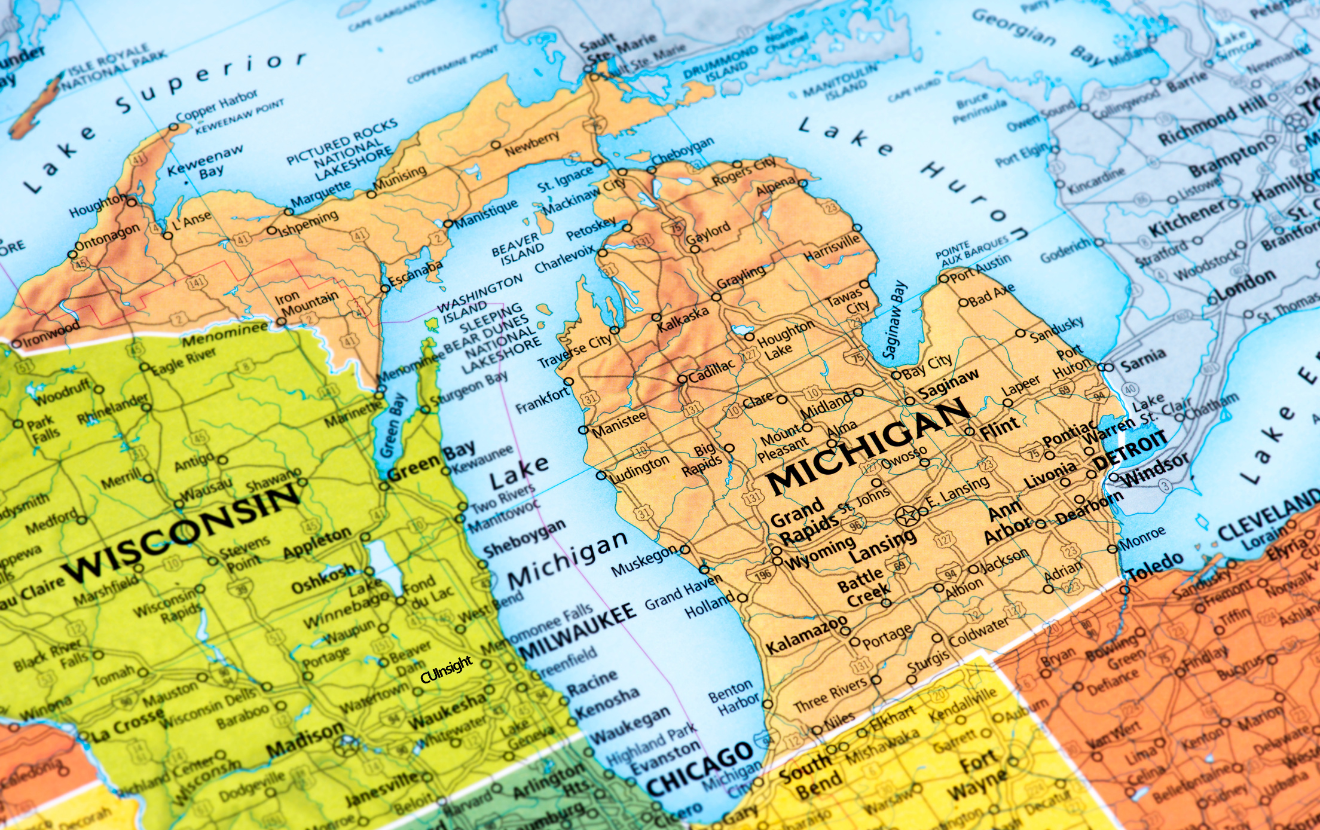A credit union-friendly environment and a plethora of well-managed institutions have contributed to Michigan credit unions having some of the strongest earnings in the nation.
The National Credit Union Administration recently revealed that net income across the industry fell $0.5 billion, or 3.6% year over year, to $14.4 billion in 2024.
But at the end of 2024, the share of federally insured credit unions with positive year-to-date net income was highest in Maine (98%), followed by Michigan (95%), according to the NCUA’s map review for the fourth quarter.
The share was lowest in Vermont (69%) and New Jersey (70%).
So what is driving positive earnings in Michigan?
“While Michigan is not a high growth market, the conditions have been steady. At this point, the state has avoided any significant challenge that would have impacted the area in any extreme manner,” said Ryan Goldberg, president and CEO of DFCU Financial in Dearborn.
The $6.7 billion asset company—the third largest credit union based in Michigan—earned roughly $42.9 million in 2024, a 12% decrease compared to a year earlier, according to call report data from the NCUA.
In an interview, Goldberg told Tyfone the $43 million in net income was post its cash-back dividend and several discretionary strategic initiatives to protect the credit union and ensure successful operations going forward.
“We sold securities at a loss, reinvested the proceeds for higher yields and funded reserves beyond requirements to ensure if there was an economic downturn we were prepared. Net income before these three actions was closer to $85 million,” he said.
The credit union saw strong business growth in all areas including residential lending, home equity lending, commercial lending and wealth management.
“All these categories exceeded our internal targets. We had a successful first quarter of net income and are exceeding our internal expectations. The points above are continuing into 2025,” Goldberg said.
John Buckley Jr., President and CEO of Gerber Federal Credit Union in Fremont, told Tyfone that Michigan has seasoned executives throughout the state who know what they are doing.
On top of that, the statewide economy has also been pretty solid.
The $238.8 million-asset Gerber had net income of $1.2 million in 2024, a 14% decrease compared to 2023.
Buckley said even though the credit union is seeing an uptick in delinquency, it has not manifested itself in significantly higher provision expense and/or charge-offs.
As to what 2025 holds in store, Buckley said it’s a guessing game.
“We are waiting to see what happens along with the rest of the country,” he said. “Loan demand has been slacking off as of late, but overall gross income is flat to projections.”
Lower expenses have impacted Gerber FCU’s bottom line as much as anything else. Buckley said the company has not filled open positions as quickly as anticipated, leading to budget savings in compensation and benefits.
“Members are also shifting their deposits to shorter term vehicles, lowering our dividend expense,” he said.
Brian Waldron, President and CEO of Dort Financial Credit Union in Grand Blanc, said Michigan has a progressive state credit union act that makes it easy for anyone to be a credit union member.
And the citizens of Michigan understand the value credit unions can provide, he said. Case in point: 60% of the Michigan population are credit union members.
Net income for the $2.3 billion-asset Dort Financial was $12.9 million last year, a 14% increase compared to 2023.
Waldron said Dort experienced strong loan demand last year, which allowed it to manage margins effectively.
“We expect to see continued success in 2025 if the economic climate allows for continued lending,” Waldron told Tyfone. “We continue to see strong demand for commercial and consumer secured autos as well as mortgages.”
Dort Financial has found managing expenses via vendor relationships has been an effective strategy for controlling operating expenses. Several expiring vendor contracts have been replaced with new providers who are happy to provide better levels of service at a lower price, Waldron said.
PFCU Credit Union in Portland has net income of $5.3 million in 2024, a 43% increase compared to a year earlier.
Michele Makley, President and CEO of the $817.1 million-asset company said Michigan credit unions excel at diversifying their loan portfolios to maximize income through business loans, participations, student loans, mortgages and credit cards.
“This strategy ensures continued interest income even when certain lending areas slow down,” she told Tyfone. “Our analytics and target marketing for member needs have resulted in above-average response rates.”
Membership growth is another strategic initiative, and PFCU is focused on attracting potential members both in-person and online. Its approach centers on understanding member needs and enhancing their financial journey.
“Michigan credit unions effectively partner with local schools in their communities,” she said. “Financial literacy is a challenge for kids, who are being exposed to money management at a younger age. This presents a significant opportunity to help bridge the gap and create relationships for the future.”
Still, 2025 may be more challenging due to market uncertainty. If consumer confidence declines, it could impact lending and other areas. “However, I remain optimistic that we can find efficiencies and new revenue streams. The members’ financial well-being is always our priority,” Makley said.
Portland, Oregon-based Tyfone is a leading provider of consumer and commercial digital banking services for community financial institutions. At Tyfone, we believe that as banks and credit unions strive for stronger earnings, adopting cutting-edge digital banking technologies remains crucial.








